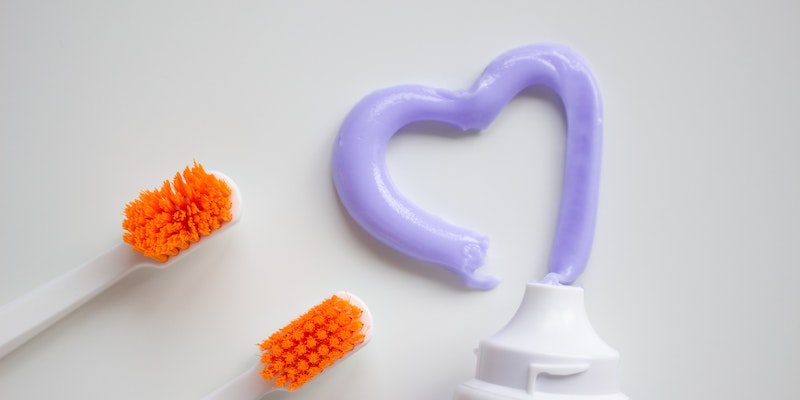Most people associate cavities with children eating too much candy or failing to brush and floss. These variables can cause tooth decay, but other lesser-known factors may raise your risk. Your mouth is complicated; many factors can affect its health.
Genetics and Dental Health
We generally credit genetics for hair and eye color, but did you realize they can also affect oral health? Certain genes may make some people more prone to oral illnesses including cavities, while others may have thicker enamel. Genetic variations may affect tooth enamel composition and quality, according to the Journal of Clinical Dentistry research. Knowing your family's dental history can help you understand your risks, making frequent dentist visits and a customized oral care routine even more important.
Chewing Tobacco and Smoking
While the health risks of cigarettes are well known, few realize their oral health risks. Tobacco and cigarettes include toxic chemicals that damage enamel and make teeth more susceptible to decay. Tobacco smoking also reduces saliva flow, leaving the mouth more susceptible to bacteria and cavities. According to the WHO, tobacco smokers are more prone to have oral problems that could cause tooth loss. Talk to your doctor about quitting smoking or chewing tobacco to maintain your dental health.
Oral Microbiome Imbalance
The mouth cavity has a microbiome like the stomach. Bacteria, fungi, and viruses live in our mouths. Many of these germs are innocuous or useful, but an imbalance can cause cavities. Diet, sickness, drugs, and stress can upset this balance. The Human Microbiome Project found that oral microbiome alterations may cause tooth caries. Maintaining a normal oral microbiota requires brushing, flossing, a balanced diet, stress management, and medication side effects awareness.
8 Things To Know
Here are eight surprising things that may put you at risk for cavities:
Dietary Habits Beyond Sugar
It's well-known that consuming sugary foods and drinks can lead to cavities in teeth. However, many don’t realize that acidic foods and beverages can be just as detrimental. These include tomatoes, citrus, and fizzy drinks. Acidic foods and drinks damage tooth enamel, making cavities more likely. Starchy meals like bread and potato chips can trap cavity-causing bacteria between teeth.

Medications and Dry Mouth
unforeseen to many, your medications might affect your mouth environment. When reading the vast list of side effects for many drugs, dry mouth (xerostomia) may appear insignificant. Although minor, this adverse effect can harm tooth health. Our mouths' unsung hero, saliva, neutralizes bacteria's corrosive acids and removes food particles that could rot. A reduction in saliva can tilt the balance in favor of these bacteria, leading to an accelerated rate of tooth decay. Key offenders, as pinpointed by the American Dental Association, include antihistamines, often taken for allergies; decongestants, a common remedy for colds; and specific types of antidepressants.
Recreational Beverage Consumption
Many adults love coffee in the morning and wine at night. These drinks and tea are enjoyed worldwide and may have health advantages. There are concerns about dental health. White wines, despite their light color, are acidic and can slowly strip away the enamel that protects your teeth, leaving them vulnerable to cavities in teeth. On the flip side, dark beverages like coffee and tea, while warming and energizing, can leave lasting stains on teeth. This staining not only impacts the aesthetics of your smile but can also weaken your teeth's protective layer, rendering them more susceptible to decay. Thus, moderation becomes the key, and ensuring thorough oral hygiene after consumption can be a protective strategy.
Brushing Too Soon After Eating
Contrary to popular belief, brushing immediately after eating can sometimes do more harm than good. If you've consumed acidic foods or drinks, brushing right away can spread the acid, further eroding your tooth enamel. It's advisable to brush your teeth at least 30 minutes after eating.
Wearing Orthodontic Braces
Braces can benefit from straightening misaligned teeth to fixing bite issues. However, they also offer more hiding places for food particles and plaque. Research published in the Journal of Oral Science & Rehabilitation found that individuals with orthodontic appliances, like braces, had a higher plaque index. This emphasizes the need for meticulous oral hygiene when wearing braces.
Age and Dental Health
Our bodies alter naturally during life. This evolution isn't limited to skin or bone density; it significantly affects our dental health. One concern for older adults is the increased risk of developing cavities on root surfaces. The reason? Over time, the gums might recede due to factors like aggressive brushing or periodontal disease. This recession can expose the roots of teeth, which lack the hardy enamel that protects the crown. This exposure and an aging immune system make seniors more susceptible. The CDC's observation that cavities on the root surfaces are rampant among older adults underscores this vulnerability.
The Snacking Habit
In today's fast-paced world, the culture of snacking between meals or substituting meals with snacks has gained popularity. However, this frequent munching can challenge your oral health. Every time you snack, especially on sugary or acidic foods, it's like inviting bacteria for a feast in your oral cavity. The longer these remnants linger, the more they allow bacteria to produce tooth-damaging acids. If you're one who often finds solace in snacks, making mindful choices is pivotal. Opting for low-sugar and non-acidic foods can make all the difference in safeguarding your oral cavity.

Underlying Health Conditions
Health is holistic. An ailment or condition affecting one part of your body can inadvertently impact another. Take diabetes, for example. Elevated blood sugar levels can also raise the sugar content in saliva. This abundance can be a buffet for harmful bacteria in the oral cavity, leading to a heightened risk of cavities in teeth. Hence, managing conditions like diabetes, staying vigilant about medication side effects, and maintaining regular communication with healthcare providers become essential to ensure comprehensive health, including that of your oral cavity.
Conclusion
Cavities in teeth aren't just a result of the obvious culprits like skipping brushes or a sweet tooth. Numerous external and internal factors, as outlined above, can influence the health of your oral cavity. Awareness is the first step to prevention. While maintaining impeccable oral hygiene routines and regular dental check-ups remain foundational, considering the other variables discussed in this article provides a comprehensive defense strategy. With informed decisions and proactive measures, a healthy oral cavity, free from the threat of tooth cavity formation, is an attainable goal for everyone.




